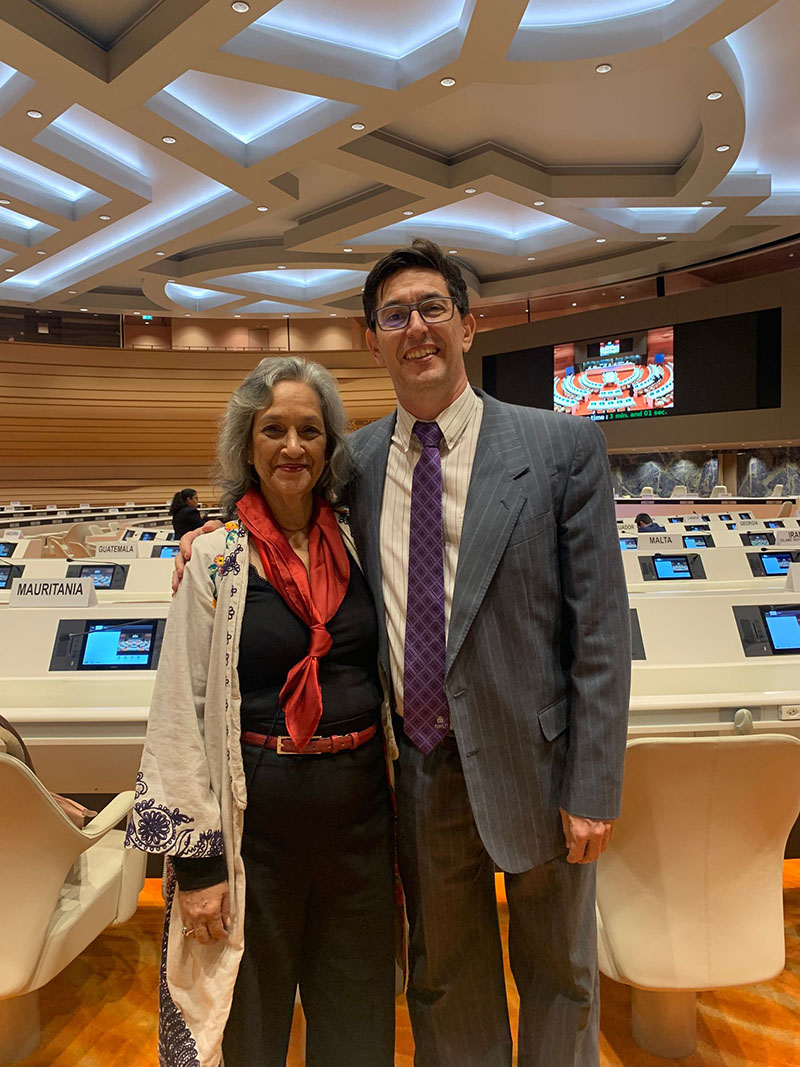Prof Klaus Beiter from the Faculty of Law at the North-West University (NWU) participated in the intergovernmental working group of the United Nations Human Rights Council in Geneva from 1 to 3 September 2025.
During this time the working group evaluated proposals for a fourth Optional Protocol to the Convention on the Rights of the Child ensuring free early childhood care and free secondary education.
The protocol aims to secure the right to free early childhood care and education (ECCE), as well as free secondary education. Prof Beiter strongly supported recognising these rights as minimum core obligations in international law, emphasising their fundamental role in advancing human dignity.
“The scientific evidence available now clearly demonstrates the importance of ECCE and secondary education for any person to be successful in life,” said Prof Beiter. “Early childhood is a crucial time window during which brain, cognitive and socio-emotional developments occur. Pre-primary education can narrow early achievement gaps for children from disadvantaged households, shape attitudes during formative years, and help identify impairments at an early stage.”
He explained that secondary education is equally vital for development and social mobility. “The cost of not completing secondary education includes reduced qualification for the labour market, lower work productivity, higher costs for social systems such as unemployment benefits and medical expenses, and the intergenerational reproduction of social inequalities.”
Prof Beiter warned that household income remains a decisive factor in access to education. “Evidence reveals clearly that school fees and related costs such as learning materials, uniforms and transport have a regressive effect on enrolment, attendance and completion. Half the world’s children are not enrolled in pre-primary education, and nearly half of all students do not complete secondary education. The gaps between the richest and poorest remain stark. In sub-Saharan Africa, for every nine of the richest students completing upper secondary education, only one of the poorest achieves this feat.”
Research shows that providing free education could change these outcomes. “One year of free and compulsory pre-primary education is associated with a 12% increase in primary education graduation rates in countries with low graduation rates. Similarly, ensuring free secondary education would lead to a 24% increase in secondary graduation rates in low and lower-middle-income countries,” he said.
Turning to the legal implications, Prof Beiter argued that adopting a minimum core approach would increase accountability. “A minimum core approach, which identifies free ECCE and free secondary education as fundamental to human dignity, would create a new culture of justification in relation to insufficient progress in implementing these rights. States would have to strictly justify non-compliance, rather than relying on broad discretion.”
He added that resources for free education are often available but poorly allocated. “More often than not, the resources are there, but have been wrongly planned, inadequately dedicated or inefficiently used. States need to commit at least 6% of GDP and at least 20% of public expenditure to education. Progressive taxation, tackling tax avoidance and debt restructuring are also necessary to free finances for education. Eliminating corruption will release much-needed funds.”
Prof Beiter also stressed the role of universities in shaping the future of children’s rights. “Universities should engage in research that confirms the importance of ECCE and secondary education, highlights the negative effects of school fees, and explores sustainable financing models. They must also promote children’s rights actively and amplify children’s voices, since children are often not sufficiently heard by policy and lawmakers. In the recent session of the working group, many universities contributed to the debate, showing that academia has a clear role in shaping international standards.”
Prof Beiter’s engagement in Geneva demonstrates the NWU’s commitment to contributing to international discussions that influence education rights and broader human rights globally.

Prof Klaus Beiter and Farida Shaheed, a sociologist and feminist human rights activist, pictured in Geneva. Shaheed currently serves as the UN Special Rapporteur on the Right to Education.
